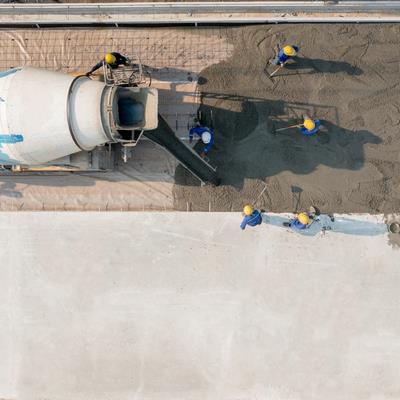jinxu mo
Dongguan University of Technology
Dongguan, China
90
Total downloads
1,774
Total views and downloads
Submit your idea
You will be redirected to our submission process.
Submission deadlines
Manuscript Submission Deadline 9 March 2026
This Research Topic is currently accepting articles.
The use of solid waste in concrete production has gained significant attention in recent years due to growing environmental concerns and the need for sustainable construction materials. Solid waste concrete involves the incorporation of various waste materials or industrial by-products, such as recycled aggregates, fly ash, slag, and rubber, as partial replacements for traditional concrete ingredients. This approach not only reduces the environmental impact associated with waste disposal but also minimizes the depletion of natural resources. Researchers have focused on improving the mechanical properties, durability, and long-term stability of solid waste concrete to ensure its suitability for structural applications, particularly in critical infrastructure such as bridges. The integration of these materials presents both opportunities and challenges, as it requires careful consideration of their impact on concrete's performance under different conditions, including the unique loading, durability, and service-life demands of bridge engineering. The research in this field aims to optimize the use of solid waste while maintaining concrete's structural integrity and functionality, enabling its broader application in bridge construction and rehabilitation.
The goal of this research is to investigate the integration of solid waste materials in concrete production to develop a more sustainable construction material that maintains or improves the performance of traditional concrete. Despite the environmental benefits of utilizing recycled aggregates, industrial by-products, and waste materials such as rubber and plastics, the challenges related to the mechanical properties, durability, and long-term stability of these materials in concrete remain significant. These challenges include potential reductions in compressive strength, workability, and the risk of degradation over time—factors of particular importance in bridge engineering, where high performance and longevity are essential. Recent advances have focused on optimizing the mix design, enhancing the bonding between waste materials and the cement matrix, and incorporating advanced additives to improve the material’s performance. Additionally, research has shown that adjusting the proportion of waste materials and carefully selecting the types of waste can mitigate these issues. In the context of bridge engineering, experimental and field studies have begun to assess solid waste concrete’s performance under demanding structural loads, cyclical environmental exposure, and during repair or retrofitting operations. By refining these methods and improving the overall material properties, this research aims to develop a reliable and cost-effective approach for the widespread use of solid waste concrete in structural applications, with particular attention to its suitability in new bridge construction, maintenance, and rehabilitation projects. Ultimately, this will contribute to a significant reduction in the environmental impact of the construction industry.
This Research Topic focuses on the use of solid waste materials in concrete production to create more sustainable building materials. Contributors are encouraged to address themes such as the incorporation of recycled aggregates, industrial by-products (e.g., fly ash, slag), and waste materials (e.g., rubber, plastics) into concrete, along with their impact on mechanical properties, durability, and long-term performance and dragged sand from rivers. Research addressing the application of solid waste concrete in bridge engineering, including, but not limited to, load-bearing capacity, resilience to harsh environments, and lifecycle performance, is especially encouraged. Topics of interest include innovative mix designs, optimization of material performance, and the development of advanced additives to enhance the bonding and stability of solid waste concrete. Manuscripts should present experimental studies, case studies, or review papers that explore the challenges and potential solutions in utilizing waste materials in concrete. Both theoretical and practical perspectives are welcome, with an emphasis on advancing the application of solid waste concrete in structural and sustainable construction. Submissions focusing on bridge engineering, including case studies of bridge projects, laboratory investigations simulating bridge loading conditions, and assessments of long-term durability in bridge environments, are particularly welcome. Submissions of original research, comprehensive reviews, and applied methodologies are encouraged.

This Research Topic accepts the following article types, unless otherwise specified in the Research Topic description:
Articles that are accepted for publication by our external editors following rigorous peer review incur a publishing fee charged to Authors, institutions, or funders.
Article types
This Research Topic accepts the following article types, unless otherwise specified in the Research Topic description:
Keywords: Solid Waste Concrete, Recycled Aggregates, Industrial By-products, Environmental Sustainability, Mechanical Properties
Important note: All contributions to this Research Topic must be within the scope of the section and journal to which they are submitted, as defined in their mission statements. Frontiers reserves the right to guide an out-of-scope manuscript to a more suitable section or journal at any stage of peer review.
Manuscripts can be submitted to this Research Topic via the main journal or any other participating journal.
Submit your idea
You will be redirected to our submission process.
Share on WeChat
Scan with WeChat to share this article
